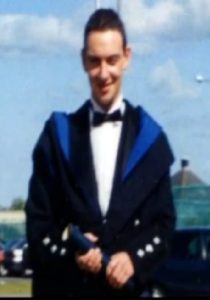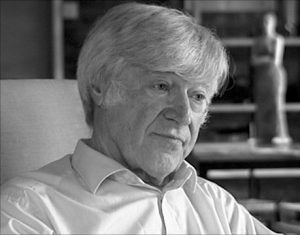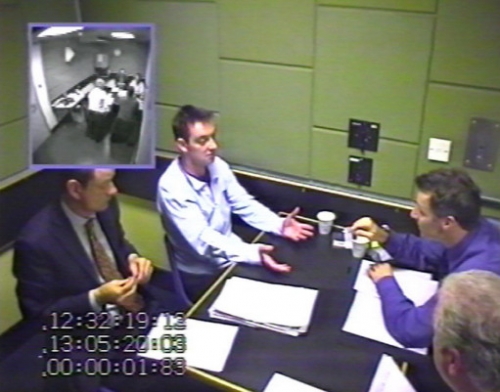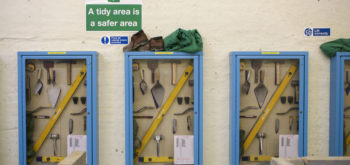On February 12 2021, the Criminal Cases Review Commission referred the convictions of former hospital nurse Colin Norris to the Court of Appeal. The decision came more than nine years after his October 2011 application to the Commission challenging his conviction. Extraordinary delay has typified every stage of his 18 year quest for justice during which time he has consistently protested his innocence. Paul May writes

Colin Norris at his graduation day at Dundee University in 2001
Colin Norris was first interviewed by police in December 2002 following the death of an elderly patient at Leeds General Infirmary. Arrested a few days later, it was almost three years before he was charged with murdering four elderly patients and the attempted murder of another. Two years elapsed before his trial commenced in October 2007 culminating in a guilty verdict five months later.
His case exemplifies problems juries face when considering complex scientific evidence. These difficulties are compounded by widespread misperceptions about the nature of science and the role of expert witnesses within the adversarial trial system. His case also highlights the dangers inherent in conclusion-driven police investigations.
Operation Bevel
On November 11 2002, retired shopkeeper Ethel Hall, aged 86 years, was admitted to an orthopaedic ward at Leeds General Infirmary with a broken hip after a fall at her home. She underwent an operation on November 14. In the early hours of November 20, she was heard making loud choking noises. The ward’s night team including staff nurse Colin Norris went to her assistance and doctors were called. Mrs Hall went into a coma from which she never recovered. She passed away on 11 December 2002.
When nurses went to help Mrs Hall, her blood glucose level was measured. This indicated she was experiencing severe hypoglycaemia (dangerously low blood glucose) expressed as 1.5 millimoles per litre. Hypoglycaemia may result in irreversible coma and death. The condition is normally observed in insulin-dependent diabetic individuals. Mrs Hall, however, wasn’t diabetic. Among possible reasons for her condition, a doctor speculated she might have been injected with insulin by mistake. A hospital consultant instructed a sample of her blood be sent for specialist laboratory analysis. On November 29 2002, the hospital was informed the laboratory test showed a high concentration of insulin in her blood. This result, it was suggested, was due to external injection of a large amount of insulin. The hospital contacted West Yorkshire Police who began an investigation on December 6 2002.
On December 9 2002, Colin was interviewed as one of 16 hospital staff who police had identified as working in or near the orthopaedic ward on the night in question. On December 11 2002 Colin was arrested. He was held for 29 hours during which time he was questioned about Mrs Hall’s death. He denied any wrongdoing and was released on police bail. The reason why police suspicion fell so quickly on Colin remains unclear to this day.
In a 2011 article for a policing journal, a senior West Yorkshire officer conducting the investigation claimed ‘initial enquiries on the ward… revealed… two other patients had died under similar circumstances’ and that Colin had been on duty in the ward when the patients suffered hypoglycaemic episodes. This assertion is simply untrue. In the course of a five-year investigation (Operation Bevel), West Yorkshire Police took a remarkable 7,212 witness statements. Not a single one corroborates the claim regarding ‘initial enquiries’ by West Yorkshire Police. There were few, if any similarities, between the deaths of the patients named in the article and Mrs Hall’s demise. Nor were the two women’s blood samples subjected to laboratory analysis.
A comment by the officer who first interviewed Colin as a witness may provide a clue why he rapidly became the sole focus of police interest. Colin is gay. In a report to his superiors, the interviewing detective made a gratuitous remark that he ‘noticed that NORRIS… was effeminate in his demeanour and speech’. It’s a matter for speculation why the officer considered it necessary to draw irrelevant attention to a witness’s sexual orientation during an interview about the wholly unconnected matter of a patient’s death.
Colin was re-arrested and interviewed by police on another five occasions over the next three years. Curiously, he was allowed to retain his passport and even given police permission to holiday abroad. Despite police admitting there was a paucity of evidence against him when first arrested, no other person was ever investigated in connection with Mrs Hall’s death.
Meanwhile, Operation Bevel embarked on a trawl of hypoglycaemic incidents in two wards where Colin worked at Leeds General Infirmary and St James’ Hospital, Leeds (Jimmy’s) during 2001 and 2002. Although supervised by clinicians, the exercise was conclusion-driven from the start. A major criterion for cases which should receive ‘high priority’ was those where ‘the suspect Norris had attended at the time of death’.
On 12 October 2005, Colin was charged with murdering Ethel Hall, Bridget Bourke aged 89, Doris Ludlam aged 80 and Irene Crookes aged 78. All four women suffered hypoglycaemic episodes shortly before their deaths. He was also charged with the attempted murder of Vera Wilby aged 90 who died months after experiencing hypoglycaemia.
Operation Bevel was headed by officers who’d recently reviewed the case of serial killer Harold Shipman. The failure of West Yorkshire Police to apprehend Shipman during his early career as a GP in Todmorden was criticised by Dame Janet Smith in her official report on the case. After Colin’s conviction, the Senior Investigating Officer on Operation Bevel proclaimed they’d ‘stopped another Harold Shipman in the making’. Approximately 50 police officers and civilian staff were engaged on the inquiry over a three year period. In 2013, West Yorkshire Police answered a Freedom of Information request I had submitted stating they ‘hold no information in relation to the estimated total cost’ of the inquiry. They did admit to spending £373,895.07 in overtime payments on top of normal salaries indicating significant determination to secure a conviction against their sole suspect.
Trial
Colin was again released on bail. He waited another two years before his trial commenced on October 16 2007. The trial lasted 19 weeks. A succession of experts testified that hypoglycaemia in non-diabetic individuals (in the words of the trial judge) is ‘vanishingly rare’. Eminent clinicians stated they’d never encountered a single case in their entire careers. To find five cases in two hospital wards was beyond the bounds of mere happenstance. The only explanation, they said, was that all five patients had been unlawfully injected with insulin. Prosecuting counsel stressed Colin was the ‘common denominator’ as he’d been the staff nurse assigned to care for the elderly women.
Experts commissioned by Colin’s defence team agreed that spontaneous hypoglycaemia in non-diabetic patients was virtually unknown. This obliged the defence to put forward an implausible hypothesis that a ‘mystery intruder’ may have gained access to the hospital wards and injected the women without being detected.
Evidence was also called concerning a condition called Insulin Autoimmune Syndrome (IAS) which results in hypoglycaemia. The Crown easily disposed of this argument. One consultant geriatrician likened the prospect of a single patient contracting IAS as ‘probably less than winning the lottery’. Over a 44 year period, only 60 instances of IAS were detected among persons of (so called) ‘Caucasian’ ethnicity out of an estimated world population of one billion. For five such cases to occur in two Leeds wards would have been statistically absurd.
Without substantiation, the Crown alleged that vials of insulin had gone missing from the orthopaedic ward around the time Mrs. Hall developed hypoglycaemia. The defence pointed to glaring stocktaking deficiencies at the hospital. The prosecution also alleged Colin was motivated by animosity towards elderly patients pointing to a police interview in which he said he found bathing older female patients difficult while on student placement. He’d made clear he only had problems ‘at first’ and ‘soon got over it’. At trial, he denied any dislike of older patients saying ‘if you don’t like elderly patients you shouldn’t be in nursing’.
The trial’s length and complexity meant Mr Justice Griffiths-Williams took five days to read out his 571 page summing-up. The jury retired on 27 February 2008 for deliberations lasting another five days. The trial judge advised jurors they could deliver a majority verdict. On 3 March 2008, by an 11-1 majority, Colin was found guilty on all charges. The next day he received a life sentence with a recommendation he serve a minimum 30 years in prison.
Colin appealed against his conviction on 9 December 2009. His grounds mostly focussed on somewhat arcane arguments concerning ‘cross admissibility’ of evidence which even law graduates (such as the present author) might have struggled to comprehend. The Court of Appeal devoted little time before upholding his conviction.

Professor Vincent Marks
The Problem with Science
The virtual army of medical and scientific experts at Colin’s trial were honest and sincere in their unanimous beliefs about the rarity of hypoglycaemia in non-diabetic patients. The trial judge was impeccable in directing the jury that expert evidence must be approached as opinion rather than incontestable fact. Indeed, a leading biochemist called by the Crown correctly observed that a scientific hypothesis can never be proved conclusively. Scientists can only find data which may or may not be consistent with the hypothesis.
There was only one problem with the experts’ evidence. It was wrong.
Research studies since 2008 show that far from an extreme rarity up to 10% of elderly hospital patients suffering from co-morbidities (two or more serious medical conditions) may experience hypoglycaemia in their final stages of life. The reason why many eminent clinicians had never encountered the phenomenon was that – understandably – they hadn’t been looking for it. As a 2012 literature review put it, there existed a ‘paucity of literature regarding the incidence of hypoglycaemia in non-diabetic patients’.The same review concluded ‘‘hypoglycaemia is not uncommon in hospitalized non-diabetic older people’.
Following the failure of Colin’s appeal, Professor Vincent Marks – widely acknowledged as the world’s leading expert on insulin and hypoglycaemia – prepared a report on Colin’s case. He concluded that spontaneous hypoglycaemia affects 5% to 10% of non-diabetic elderly patients who have risk factors such as other serious conditions (as was the case with all of the women). His initial findings were submitted to the Criminal Cases Review Commission in October 2011.
Why was there little or no research into non-diabetic hypoglycaemia before 2008? The simple answer is that there was no interest – and hence funding – from pharmaceutical companies, governments , charitable foundations or universities in finding out what happens in the final days of life. The notion that scientists are in a position to pursue ‘pure’ knowledge for its own sake is mythical. Like the rest of us they must pay their bills and need to be funded. Put bluntly, there was no money in discovering end of life phenomena.
By the very nature of science, there can never be absolute certainty about a scientific theory. Any hypothesis is only as valid as the most recent data. This sits uneasily within the adversarial English criminal trial system. Judges, lawyers and jurors routinely demand unambiguous certainty from expert witnesses who may feel tempted to provide dogmatic and inflexible evidence. Thus at the 1975 trial of the Birmingham Six, the jury preferred self-assured, doctrinaire assertions from a Home Office employee later exposed as a chronic incompetent to cautious but authoritative evidence from a much better qualified defence witness from the Royal Institute of Chemistry.
In 2011, the Law Commission published a report which acknowledged problems with the admissibility of expert evidence. The report’s conclusions were almost universally applauded by those involved in criminal justice including judges, scientists, other experts as well as prosecution and defence lawyers. A key recommendation was that courts conduct pre-trial hearings at which the reliability of expert evidence would be probed. This might include enquiry whether proposed testimony was supported by a firm body of research. Had the proposed system been in place before Colin’s trial, the absence of confirmatory research to support the alleged rarity of non-diabetic hypoglycaemia would have become apparent. The experts’ testimony might have been ruled inadmissible. Sadly, a lone voice opposing the Law Commission recommendations was the then Justice Secretary, the Rt. Hon Christopher Grayling MP. For no rational reason, he flatly rejected the report claiming pre-trial hearings would cost too much. Despite protests that the proposals were more likely to save public money, he obdurately refused to budge leaving him free to pursue other nonsensical pet projects such as banning prison inmates from receiving books.
The CCRC
In 2012, Colin asked me to establish a support committee for him. This followed the release and exoneration of Sam Hallam who I had (reluctantly) represented in his application to the Criminal Cases Review Commission. In line with CCRC procedure, Colin waited some nine months before a case review manager was assigned to investigate his application. In late 2012, I met with his case review manager and the Commissioner overseeing his case at the CCRC’s offices in Birmingham. The meeting was cordial and courteous but I came away uneasy that the Commission didn’t seem to have a clear idea how it would evaluate Colin’s complex case.
An obvious start point for the Commission’s investigation was to access hospital records. The reaction of Leeds Teaching Hospitals NHS Trust to requests from the Commission for information was unhelpful. Notwithstanding that the CCRC possesses extensive statutory powers to require documentation from public bodies, the Trust referred requests to its solicitors leading to chronic delay. In November 2014, I was informally advised that soundings with a high-ranking member of the Trust had revealed that relevant records prior to 2005 no longer existed.
In January 2015, I submitted a Freedom of Information Act request to the Trust asking how many hypoglycaemic incidents were recorded in orthopaedic trauma wards in the years since Colin’s arrest. I received the reply that the Trust ‘does not record the information requested in this format’. This was astonishing. A staff nurse had allegedly injected multiple patients with insulin and was convicted amid national and international notoriety but the Trust had no apparent interest in maintaining relevant statistical records thereafter.
In 2014, Colin decided to dispense with his then legal representation. Very reluctantly, I undertook to represent him in his CCRC application until a new solicitor could be found. My reluctance was founded on several considerations. I’m not (and have never aspired to be) a lawyer. As a campaigner, I regard my role as helping innocent prisoners’ lawyers to do their job by highlighting and drawing public attention to their cases. I was, moreover, aware that expert witnesses – with the notable exception of Professor Marks who’d patiently helped me grasp at least some of the basic science in Colin’s case – would rightly be much less likely to engage with an unknown campaigner rather than an established law firm.
The prospects of finding lawyers able to undertake thousands of hours’ unpaid work on miscarriage of justice cases have massively diminished thanks to swingeing legal aid cuts. I remain grateful to Michael Mansfield QC who took time out from his tour de force representation of bereaved families at the inquest into the 1988 Hillsborough tragedy to meet with me twice in 2015 to discuss Colin’s case. We met at the disorientating business park on the outskirts of Warrington where the hearings were held. Michael was instrumental in persuading Birnberg Peirce Ltd to take on Colin’s case. The firm is headed by the incomparable Gareth Peirce. I worked with her on many wrongful convictions since I began chairing the London-based campaign for the innocent Irishmen known as the Birmingham Six in 1985.
In September 2016, not long after Colin’s new legal representatives took over, the Commission issued a 58 page Provisional Statement of Reasons (PSOR) rejecting his application. The PSOR confirmed that most of the experts the Commission approached about non-diabetic hypoglycaemia had appeared for the prosecution at Colin’s trial. It was perhaps unsurprising they stood by their trial testimony. Colin’s new lawyers protested that they needed time to prepare fresh representations. The CCRC agreed to await their submissions and withdrew the PSOR.
In January 2017, Colin’s legal team submitted further fresh evidence. This included a fresh report after limited access to some of the women’s medical records had been obtained. The report concluded that hypoglycaemia experienced by four of the women was a secondary effect of pre-existing illnesses. In other words, there was every reason to conclude the women died of natural causes.
In August 2019, the Commission issued a second PSOR rejecting Colin’s application. The CCRC’s refusal focussed on an issue which bedevilled its understanding of the case more or less from the outset – that the five patients’ cases represent a ‘cluster’ of phenomena which couldn’t be adequately explained. In January 2020, his lawyers again drafted a painstaking response demonstrating that no such ‘cluster’ existed. The clinical picture now pointed to all of the women except Mrs Hall having suffered hypoglycaemia due to natural causes. Had the jury in 2008 been aware of the medical and scientific evidence as it now stood, it’s inconceivable a guilty verdict would have been returned.
Mrs Hall’s case should be treated separately. Anomalies surrounding the 2002 immunoassay test on her blood sample include the uncontested fact she wasn’t hypoglycaemic when the sample was taken, an unexplained 5 day hiatus between stages of the immunoassay tests, no second confirmatory test and failure to apply more reliable analytical methods. Nevertheless, the result still suggests she was injected with insulin. No evidence was ever presented against Colin as one of sixteen staff with potential access to her on the night in question. Sadly, the truth concerning Mrs Hall may never be known partly due to police failures to investigate suspects other than Colin Norris.
On 12 February 2012, the CCRC finally answered the lawyers’ January 2020 representations. Having consulted an independent expert in geriatric medicine who largely agreed with Professor Marks’ findings, Colin’s convictions would be referred to the Court of Appeal. In its press statement accompanying the decision, the Commission ‘concluded there is a real possibility that the Court of Appeal will decide that Mr Norris’s conviction …is unsafe’.
*
Since 2012, I’ve visited Colin many times at HMP Frankland in Co, Durham where he is held as a Category A inmate. The day his conviction was referred coincided with his 45th birthday, He’s a mild mannered, friendly Glaswegian who endures his ordeal with great stoicism. He spends much of his time on initiatives to help others including establishing a food bank donation scheme in conjunction with a local charity outside the prison.
While he gets on well with prison staff, he is detained in high security conditions more oppressive than any innocent inmate with whose case I’ve been involved over the past 36 years. This includes those formerly serving sentences for terrorist offences – the Birmingham Six, Judith Ward and Danny McNamee. Some notion of the bleakness of HMP Frankland’s location may be gathered from the fact that the last village one passes before reaching the prison is called Pity Me.
Colin has been supported throughout the nightmare by his devoted mother June, his stepfather Raymond and many loyal friends. Tellingly, these friends include NHS nurses he met during his three years’ training at Dundee and in Leeds after he qualified in 2001. None believe he could possibly have committed the offences for which he was convicted and imprisoned.
I hope and pray the Court of Appeal will recognise that yesterday’s scientific certainty often becomes today’s discredited fallacy and that this innocent man will soon regain the freedom which should never have been taken away from him.







